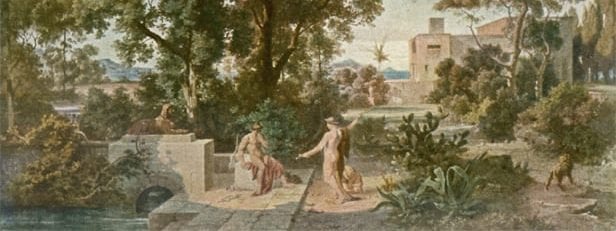Please visit our new site at phusiskaiphuta.wordpress.com

From a fifteenth-century Italian erbario, discussed here
Project description
The purpose of this project is to gather and share ongoing research on nature (φύσις) and plants (φυτά) in ancient Greece. It is based on a regular online seminar and yearly conferences. The range is from Homer to the Vth century for our first series of webinars and the first conference, and then including IVth century authors and beyond for the second series.
Our main interests are: i) the representation of plants and vegetal processes in Greek thought and literature, with an emphasis on the linguistic analysis of the vegetal lexicon (e.g. φύω, θάλλω, ἀνθέω, βλαστάνω, ῥιζόω and their cognates and derivatives), throughout all sources, whether poetic, philosophical or technical; ii) the use of plants as analogical or metaphorical models for various areas of experience and speculation (such as cosmogony and cosmology, politics and society, the body, kinship, ethics, psychology, etc.), thus assessing how much botanical and agricultural practices might have nourished the development of Greek thought.
Organizers
Alessandro Buccheri
(Center for Hellenic Studies; formerly Labex HASTEC – Centre Jean Pépin)
Arnaud Macé
(Université de Franche-Comté, Logiques de l’Agir EA 2274)
Leon Wash
(University of Chicago)
Seminars
This project began as a series of online seminars (in the pre-Zoom era). Each meeting has focused on the presentation and discussion of some current research of one of our participants. Our third series is about to begin. For the format and program of our current and prior series, please see here.
Conferences
We are eager to resume planning for Phusis kai Phuta II, which was originally planned for Chicago in 2020, but had to be postponed.
Our first conference, Phusis kai Phuta I, took place 18-19 June 2019 in Paris. It was a fantastic culmination of a year’s worth of lively and productive conversation. Many thanks to all of the seminar participants, but especially those who were able to come to Paris, along with some others who joined us for the first time at the conference.
A few highlights from the live reporting by Arnaud Macé:
Now Chiara Ferella speaks of the birth of plants and trees reconstructing P. Strasb. 1665-6. ENS. D-F 10B 18 pic.twitter.com/EPGWEwkkeD
— arnaud mace (@arnaudmace) June 18, 2019
Keynote conference de Gottfried Heinemann (Kassel). Il présente une synthèse de ses 20 ans de recherches sur toutes les occurrences de phusis, phuomai et tous les termes apparentés d'Homère à Aristote : une archéologie des expressions relatives à la nature et aux plantes. pic.twitter.com/o3xPxvGDxo
— Arnaud Macé (@arnaudmace) June 19, 2019

